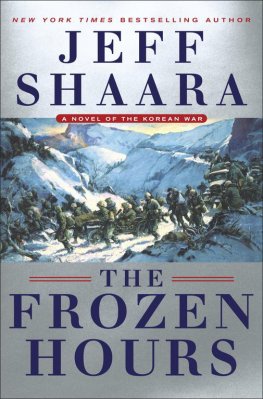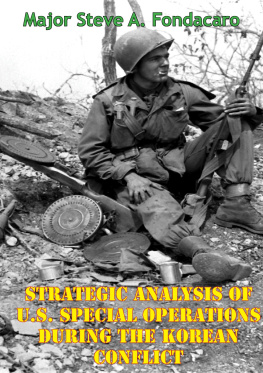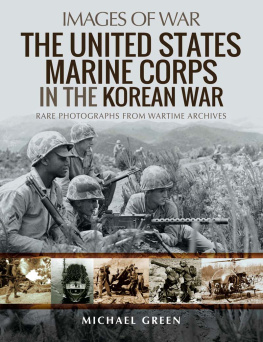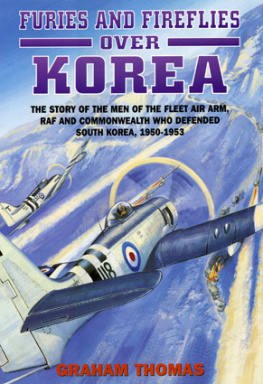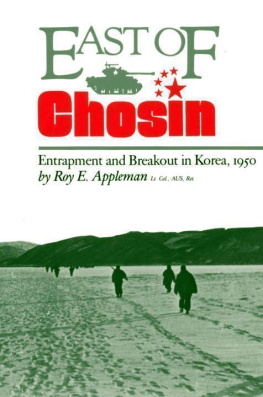2014 by The Kent State University Press, Kent, Ohio 44242
ALL RIGHTS RESERVED
Library of Congress Catalog Card Number 2013043349
ISBN 978-1-60635-203-8
Manufactured in the United States of America
LIBRARY OF CONGRESS CATALOGING-IN-PUBLICATION DATA
Kiper, Richard L., 1945
[Army raiders]
Spare not the brave : the Special Activities Group in Korea / Richard L. Kiper.
pages cm
Includes bibliographical references and index.
ISBN 978-1-60635-203-8 (hardcover)
1. United States. Army. Special Activities Group. 2. Korean War, 19501953Regimental historiesUnited States. 3. Korean War, 19501953Participation, American. 4. Raids (Military science)History20th century. 5. CounterinsurgencyKoreaHistory 20th century. 6. Korean War, 19501953Campaigns. 7. SoldiersUnited StatesBiography. 8. Korean War, 19501953Biography. I. Title.
DS919.K57 2014
951.904'28dc23
2013043349
18 17 16 15 14 5 4 3 2 1
War spares not the brave, but the cowardly.
Anacreon, Fragment 101, Palatine Anthology, VII, 160
When I was a boy growing up in the 1950s, my world evolved around baseball cards, sandlot pickup games, and comic books. My collection of those fourcolor stories included everything from Mickey Mouse to Superman to World War II adventures. One of the latter, in particular, has stuck with me over the years. The comic books opening page showed a husband and wife leaving a veterinarians office, with the wife saying how kind and gentle the vet was. The thought bubble over the husbands head contained unspoken words about how, yes, the veterinarian was gentle; but the husband knew what acts of bravery that kind veterinarian had performed as a marine in the battle of Guadalcanal.
I was reminded of this comic book as I ate breakfast in Spring Green, Wisconsin, on 21 September 2006. The town was the location of the seventh annual reunion of the Far East Command (FEC) Raider Company. It was my third time to attend one of the companys reunions, and on this occasion the soldiers of that small, mostly unknown unit had honored me by giving me a baseball hat with their logo embroidered on it. One morning we all went to a restaurant called Chefs In for breakfast. While I sat at the counter eating my hash browns and scrambled eggs, a man sat down next to me and asked me who these people were. I told him a short version of their story, and then I asked him if he knew Raider Company member Bob Graves, a resident of Spring Green. The man said he did know Bob, but he did not know Bob had ever been in the army. That was the moment when I remembered the fictional story of the veterinarian as told in my old comic book about World War II. I was reminded of that story yet again when I later read what Ronald Reagan had said in his 1982 State of the Union address: We dont have to turn to our history books for heroes. Theyre all around us.
Everyone who enters Bobs office sees a cluttered desk, several file cabinets, a couple of chairs, and a small end table. On the walls hang sketches of numerous golf courses he has designed. Nowhere is there any indication that Bob was in the army or that he had been a member of a small band that landed on a hostile shore in the middle of the night in Korea. Nothing advertises that he received a Silver Star for the heroism he displayed in a dramatic battle in the frigid winter of January 1951.
Bob and the other members of the Raider Company and its parent organization, the Special Activities Group (SAG), have received little notice from historians. Their exploits have been mostly overlooked by Korean War scholars. Indeed, were it not for Raider Dave Davis, this companywhich only existed for a short time in 1950 and 1951would have had no reunions at all. After their time in Korea, they scattered across the globe. Then, in February 2000, Dave and his wife, Ola, hosted a gathering of a dozen or so Raiders they had managed to contact. After that gathering, Jearl Buck Ballow, who was once assigned to FEC headquarters, took on the task of uncovering what few records of the unit exist and tracking down former members of the company. Since that time, Buck has managed to locate more than 160 Raiders and members of SAG. Sadly, more than one hundred of them had left this earth prior to Daves and Bucks efforts; many others, including Bob Graves, have since passed from the rolls. Still, these soldiersthese brothersgather annually to reminisce, hurl barbs that only initiates would understand, argue over events and personalities, and shed a few tears. At several of the reunions, grown children of living and deceased Raiders joined the ranks. And the group has welcomed into its midst an outsider who wanted to tell their story.
Although I am a twenty-six-year army veteran with service in Vietnam, I did not know what to expect when I walked into the hospitality suite at the first Raiders reunion I attended (their fourth). I was at least fifteen years younger than they were, and I had never set foot in Korea. I had never met any of them. Would they allow me to listen to their conversations? Would they allow me to interview them one on one and record their words? How open would they be? Would they wonder whether I had a hidden agenda? Would they suspect me of only writing a book about them for my own personal gain? Would they trust me to be fair and accurate in what I wrote?
As I got to know them and proceeded with the project, I developed respect forand friendship withthese men. In fact, I often had to ask myself whether I was allowing that respect and friendship to affect my professional requirement to remain objective. Satisfying that requirement is not as easy as one might suppose.
As a professional historian who has written books on the Civil War and coauthored one on the war in Afghanistan (which required a trip to that country), I was aware of the necessity to correlate memories with contemporaneous records. Before attending that first reunion, I had attempted to learn as much as possible about the Raiders so I would have a context for the discussions and interviews. What I found was less than comforting: references to the Raiders or SAG were few and far between, typically relegated to a paragraph at most, and more often to a footnote. The written Raider story usually begins and ends on the night of 12 September 1950, with a raid near Kunsan. Little else appears about them until their inactivation on 31 March 1951, at which point they simply disappear from Korean War histories. Historians pull on threads to see where they lead. Was the Raider story no more than a single thread that, when pulled upon, would lead nowhere?
Compounding the difficulty was the fact that unit rosters initially were kept in pencil on a tablet. None of the Raider Companys complete rosters have been located. Not until November 1950 do morning reports for SAG appear. The first morning report for the Raider Company is dated 19 January 1951. Daily journals for SAG began to be compiled in December 1950; therefore, movements and events prior to then cannot be supported by unit documents. The Raider Company commander delivered reports verbally, without completing any written account. No official organizational documents, such as a Table of Organization and Equipment, have been located. There are organization charts that depict how SAG and subordinate companies were intended to be organized, but nothing to prove how they actually were organized.


